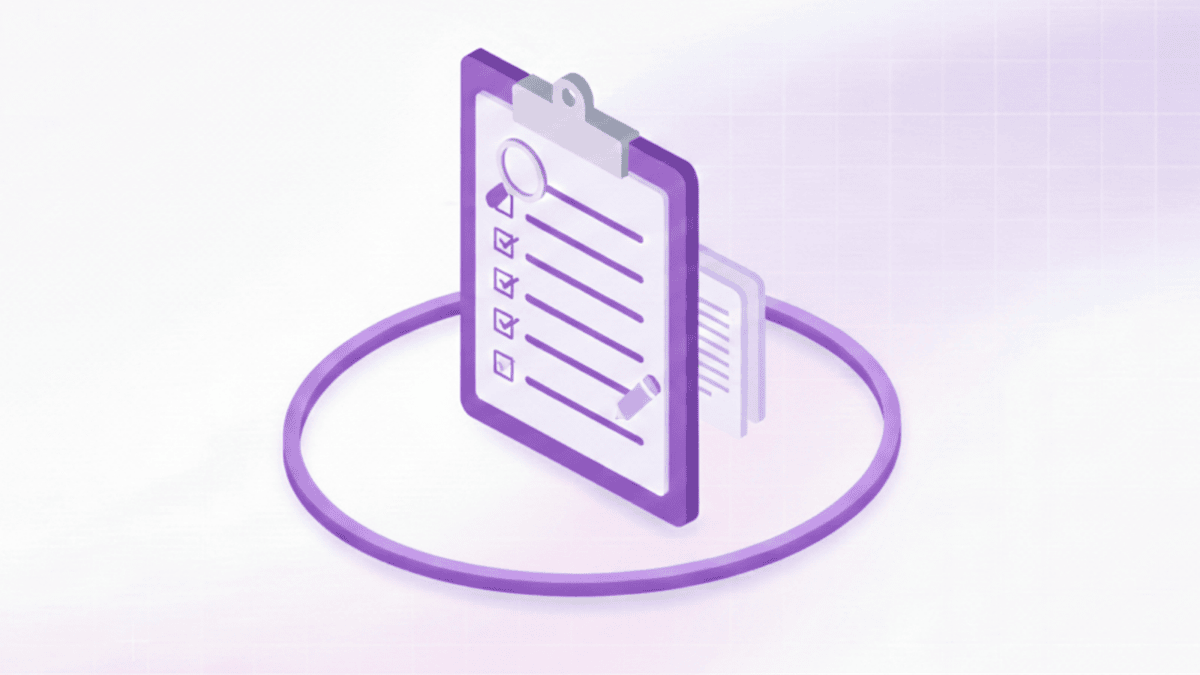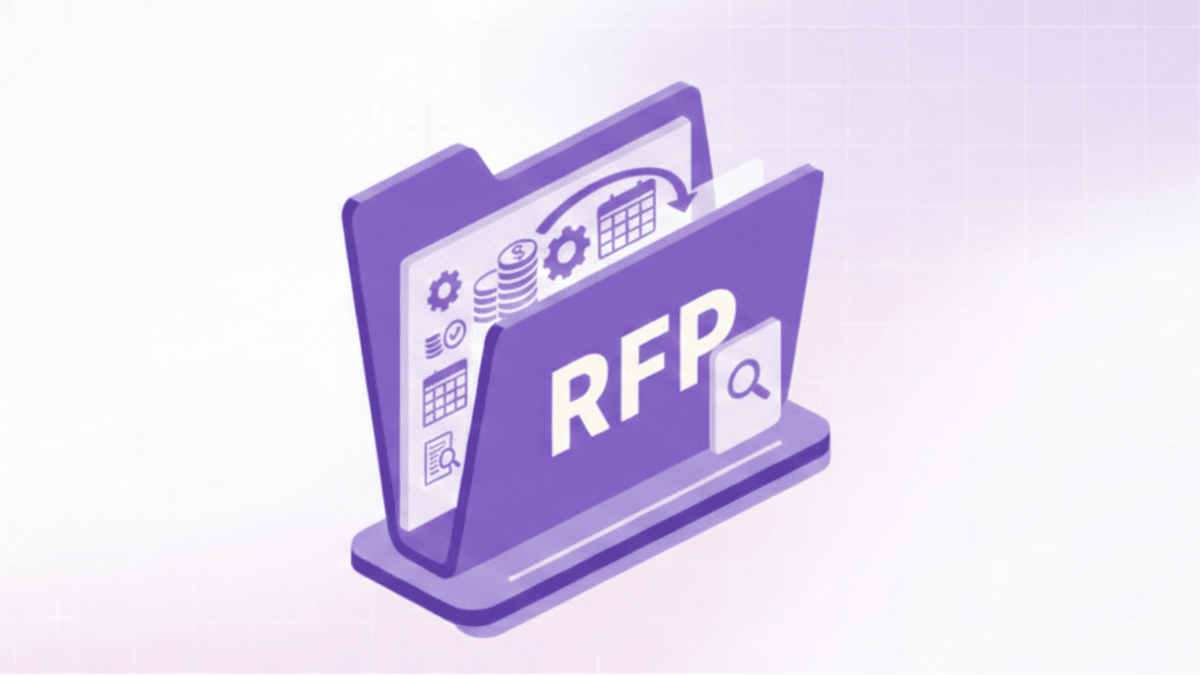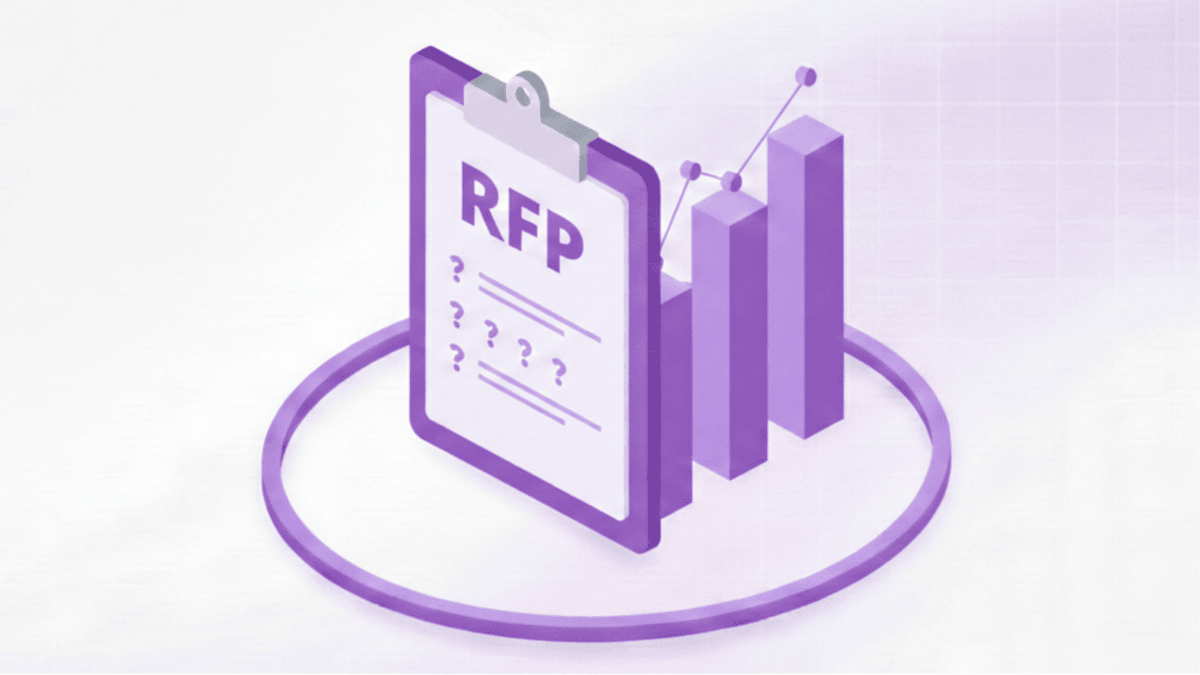A bid manager leads the end-to-end proposal process, coordinating strategy, stakeholders, and compliance to win complex RFPs.
You know when the pressure hits the moment the RFP drops.
You juggle reviews, chase inputs, decode requirements, and craft a proposal that actually wins.
Welcome to the world of a bid manager, where strategic thinking meets relentless execution.
In 2025, this role isn’t just about coordinating documents or meeting submission deadlines. Today’s bid manager is part strategist, part project manager, part storyteller, and increasingly, part technologist.
Whether you’re navigating high-stakes enterprise bids or managing multiple mid-size opportunities, your ability to influence outcomes goes far beyond paperwork.
This guide covers key skills, team structure, AI’s role, and the path from coordinator to certified capture expert.
If you’re in the business of winning bids, this is your playbook.
Who is a bid manager? (And why the role matters more than ever?)
A bid manager is the orchestrator of the entire bidding process. They are responsible for turning potential opportunities into winning proposals by coordinating strategy, content, team contributions, timelines, and compliance.
The bid manager doesn’t just keep things moving; they drive the momentum and energy behind a pursuit
In complex sales cycles like government, SaaS, or engineering, bid managers bridge SMEs, sales, legal, finance, and executives.
They ensure that the company presents a unified, coherent, and compelling response that aligns with the client's needs and the company's value proposition.
Their responsibilities have evolved dramatically in recent years. Today, bid managers influence go/no-go calls, shape strategy, manage pricing, assess risk, and ensure submission quality.
The role is high pressure but high impact. When a bid manager excels, the entire organization feels it through increased win rates, higher revenue, and a smoother sales cycle.
Should bid managers be freelancers or in-house?
Bid managers today have flexibility in how they work.
- In-house roles offer long-term growth, close relationships with teams, and a deeper understanding of industry-specific challenges.
- Freelance roles offer flexibility and higher income but require managing tools, workflows, and client relationships independently.
The choice depends on goals, risk tolerance, and work style. Many professionals even switch between the two over their careers.
In-house, bid managers are usually a part of a larger team involved in curating proposals for success.
Inside the proposal team: The bid, capture, and proposal managers roles explained
Winning a proposal isn't a one-person job. It takes a well-oiled proposal team, where each role complements the other.

- Bid manager: The project leader responsible for overseeing the entire process, maintaining timelines, managing stakeholders, and ensuring strategic alignment.
- Proposal manager: Focuses on developing high-quality content. This includes compliance, formatting, assembling inputs, and creating a compelling narrative.
- Capture manager: Starts work before the RFP is released. Their job is to position the company for success by understanding the client, identifying gaps, shaping messaging, and defining win themes.
While the bid manager keeps the train on the tracks, the capture manager lays the tracks, and the proposal manager ensures the train is ready and on time. When these roles are well-defined and well-coordinated, proposal teams operate with far greater efficiency and success.
Given this, there are key skills that align with the role of a bid manager that ensure their success.
What are the key skills of a bid manager?
Success in this role demands a unique mix of technical, interpersonal, and strategic skills:
- Project management: Managing multiple deadlines, content contributors, and review cycles without dropping the ball.
- Stakeholder management: Collaborating with everyone from C-level executives to junior technical writers—and ensuring everyone is aligned.
- Strategic thinking: Connecting client needs with internal capabilities and framing proposals that resonate.
- Analytical insight: Understanding pricing structures, risk profiles, and business drivers.
- Communication: Writing persuasively and tailoring messages to diverse audiences.
- Adaptability: Responding to changing timelines, requirements, and resources without losing control of the process.
These skills aren’t static. The best managers continually refine their capabilities and seek feedback to improve the bid lifecycle.
Breaking down the bid lifecycle
The bid lifecycle includes all the phases from identifying an opportunity to submitting the final proposal and collecting feedback afterward. Understanding and managing this lifecycle effectively is essential for any bid/proposal manager.

a. Opportunity identification & qualification
It starts with recognizing and assessing opportunities. Is this RFP a strategic fit? Can we deliver on the requirements? What is our probability of winning? Here, the bid manager collaborates with sales, capture managers, and leadership to make data-driven decisions.
b. Capture planning & pre-RFP strategy
Once qualified, the capture phase begins. The manager may work with a capture manager to shape the opportunity, researching competitors, understanding client pain points, and defining win themes.
These steps form a crucial part of the RFP process.
c. Proposal development
This is where the action begins. Writers, designers, pricing teams, and SMEs come together under the direction of the bid manager to develop the proposal. Timelines are critical, and coordination is everything.
d. Internal reviews & compliance checks
Before submission, proposals go through color team reviews (e.g., pink, red, gold) to ensure quality, consistency, and compliance. The bid manager runs these reviews, integrates feedback, and keeps the process moving.
e. Submission & debrief
After submission, managers handle presentations, clarifications, and feedback to improve future bids. Mastering this lifecycle requires agility, foresight, and a highly structured approach.
What are challenges faced by bid managers?
1. Deadline pressure
Proposals are often urgent. Bidders can mitigate deadline risks by building repeatable workflows, using templates, and kicking off projects early, even before the RFP drops.
2. Team coordination issues
Delays in input from SMEs or conflicting priorities can stall progress. The solution lies in early stakeholder engagement, clear expectations, and automated reminders.
3. Content quality & consistency
Balancing speed with quality is tough. Having a centralized content library and editorial standards helps ensure consistent messaging and branding.
4. Scope creep & compliance risks
Clients often introduce last-minute changes. Bid managers must set clear change control processes and use compliance matrices to avoid errors.
Overcoming these challenges requires both structure and flexibility, and often, the right tech stack.
Career progression: From bid coordinator to certified capture manager
Bid management offers clear pathways for professional growth. Many professionals start as:
- Bid coordinator: Assisting with content collection and formatting
- Proposal specialist: Drafting sections of the proposal
With experience, they move into roles like:
- Proposal manager: Leading the content creation and submission
- Pursuit manager: Driving strategic alignment for large deals
- Certified capture manager: Leading entire pursuit efforts and win strategies
Certifications like those from APMP (Association of Proposal Management Professionals) validate expertise and help stand out. Investing in capture management training or courses on strategic proposal writing can also fast-track careers.
How is AI changing bid management
AI is transforming the proposal landscape. Instead of manually reviewing RFPs, modern bid managers now rely on tools that can:
- Extract requirements and deadlines
- Generate draft responses from past proposals
- Summarize long tender documents in minutes
- Suggest winning themes based on previous successes
This isn’t about replacing people. It’s about augmenting human expertise. AI frees up time, improves accuracy, and enables faster turnaround, making teams more competitive.
As RFP volumes rise and timelines shrink, embracing automation is no longer optional. It’s a competitive advantage.
How SiftHub helps bid managers land lead bigger wins
SiftHub eliminates the manual grunt work to lead high-impact bids, not chase documents.
With SiftHub:
- Analyze RFPs instantly and surface key requirements
- Auto-generate first drafts using past winning responses
- Collaborate with SMEs and reviewers in real-time
- Monitor progress and ensure every submission is compliant
It’s an AI-powered teammate across the bid lifecycle, giving more time to focus on strategy, storytelling, and win themes.
The bid manager role has become a growth lever. SiftHub helps operate at a higher level: faster responses, better proposals, bigger wins.
Ready to win deals? Request a demo today.
This blog was updated for relevancy on Friday, 13th February, 2026
FAQs about bid manager role
1. What does a bid manager actually do?
A bid manager leads the end-to-end proposal process, coordinating strategy, timelines, stakeholders, compliance, and content to submit winning bids on time.
2. What skills are required to become a successful bid manager?
Strong project management, stakeholder alignment, persuasive writing, strategic thinking, and the ability to manage deadlines under pressure are essential.
3. What is the difference between a bid manager and a proposal manager?
A bid manager owns the overall strategy and process, while a proposal manager focuses on writing, formatting, compliance, and assembling submission content.
4. Is bid management a good career path in 2025?
Yes. Growing RFP complexity and AI adoption make skilled bid managers high-impact, well-paid professionals with clear progression into capture or pursuit leadership.
5. How can AI help bid managers respond faster to RFPs?
AI tools extract requirements, reuse approved answers, generate drafts, and flag gaps, cutting response time while improving accuracy and consistency.










